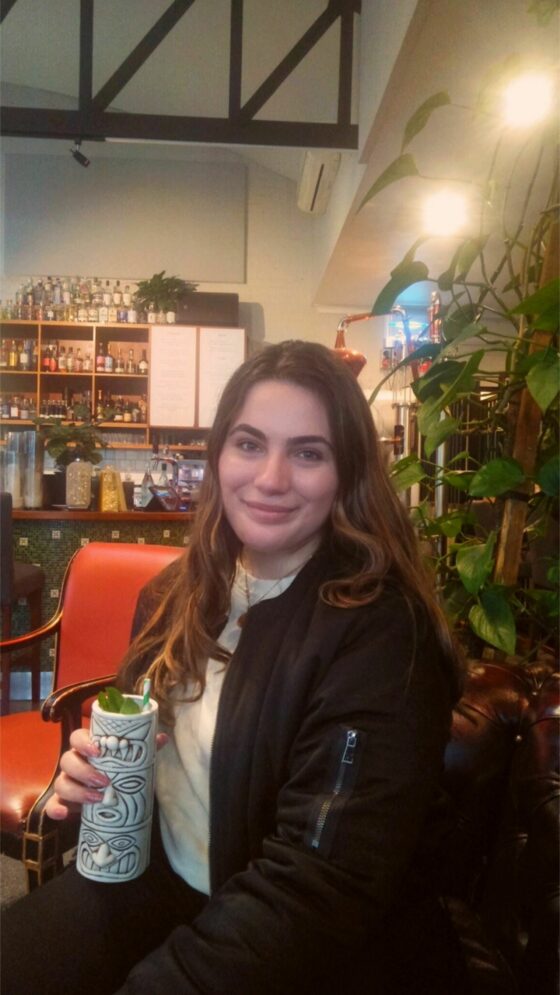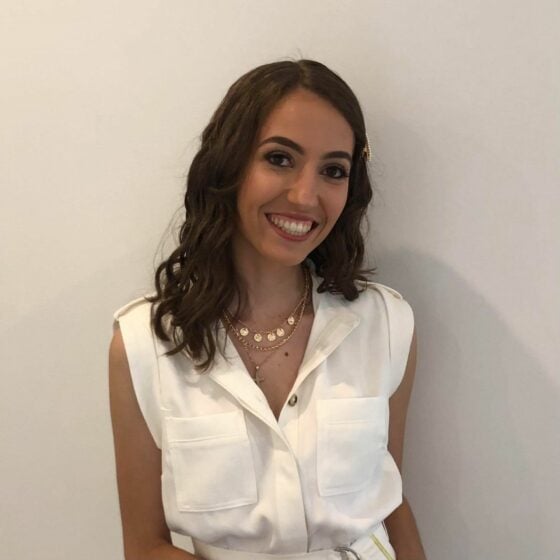The National Union of Greek Australian Students (NUGAS) is back with a new committee and their thoughts and musings on the world around them.
The new teams and their affiliates kick off the ongoing youth dialogue series by delving into how the Greek community across the world can become more interconnected.
You can find people with Greek descent across all four corners in the world, all expressing and practicing parts of Greek culture in their own way, melding old traditions with customs of their birth country.
Neos Kosmos spoke to the youth of NUGAS about how they think Greek-Australians can strengthen ties with the Greek diaspora.
READ MORE: Opinion: The differences across Greek-Australian generations
Eleni Lykopandis

Growing up as a young Greek-Australian, I felt decidedly different from all my classmates at primary school. As they all got excited for the Easter bunny’s footprints in our classroom; I sat and wondered why he was two weeks early, and where all the dyed red eggs were. “Ah,” my mother explained, “those are Australian traditions. We don’t follow that. We believe in Χριστό and his Resurrection.” I nodded along, signifying that I understood, but I didn’t really.
I grew up going to Greek School every Saturday and Church every Sunday, but as I wrote about my weekend every Monday morning in class, I wondered where my footy matches, sleep-ins, and Saturday morning cartoons were.
I know my experiences aren’t an isolated circumstance, and that almost every Greek in the Diaspora has gone through something similar. The beauty of our culture is that it not only survived, but thrived under occupation, wars, genocide, and the like. It is a rare and exceptional privilege that I can listen to stories from the Greek diaspora around the world and have almost similar experiences of running from a wooden κουτάλα or dressing up in traditional clothing for the 25th of March parade. It is so important to strengthen these ties and keep them close as it creates almost a sense of a second national identity: while the Greeks born and raised in Greece can’t relate to our stories, the Greeks of America, Canada, UK, Germany, New Zealand and more can sit and laugh along with us.
When discussing the strengthening of ties between the Greek Diaspora, addressing the ‘how’ is probably the hardest part. As the social climate changes and the original migrants of the 50s and 60s begin to leave committees and other social groups, there is a constant struggle to appeal to the younger generation. Our organisations must change their focus and remind second and third generation Hellenes in the Diaspora of their rich and powerful culture. A shift towards social media has proven to be positive. The inherently global nature of the Internet has made the ability to connect to the Greek Diaspora outside of Australia infinitely easier.
We have our three main channels of connection already established: spirituality, language and culture. It’s just a matter of bringing them to the 21st century so younger generations can connect to each other. Greek – American YouTube videos about Greek Orthodoxy from channels such as Y2AM and Theoria have amassed over 60,000 worldwide subscribers combined. They invite priests and bishops to discuss issues that pertain to the global Greek Orthodox community, allowing us to deepen our faith.
Language apps help us learn to read, write and speak Greek while funny/‘meme’ pages on social media sites jump on viral trends and add a Greek twist, almost immediately connecting all the Greek diaspora based on our shared experiences.
Looking back now, I understand what my mother meant. I am an Australian citizen living in Australia, but my culture and my heritage is beautiful and unique: it’s Greek. We must keep our traditions alive globally and connect with the international diaspora through social media and other technological means to strengthen our ties and our identity. I no longer wish for the footy matches, days off and cartoons. Instead, I connect with my Greek heritage and proudly show it off as if it were a medal of gold.
Dean Kotsianis

To ask how we can strengthen ties between diaspora groups, I think we must first ask, why we should. For me it fundamentally comes down to achieving a shift in perspective. We all know of the community kinship we share, and understand the difficulties faced by early migrants that necessitated its creation. But what I don’t think we realise, is the degree to which this truly extends. We often tend to think of our community in very local parameters, confined to our immediate surroundings in the people and institutions we are familiar with – our local Greek café, church or festival.
This is a reasonable thought because these things are relevant to our daily lives. But, in the family tree of Greeks abroad there is a shared point of origin with all other Greek-communities and therefore, shared learnings of migration, rebuilding, and the identity crisis that comes attached. Maybe it is up to us to come together to try and work these things out and enjoy each other’s company along the way. Arguably also, the perspective of the recent migrant and citizen abroad, is one that Greece cannot understand without us, for it is unique to our travels and tribulations. So, although Melbourne, London and New York are all very different places and have spawned unique social, political and cultural challenges for their Greek communities, there is a very palpable link between us that is very difficult to ignore once identified.
So again, why? Taking an interest in what each other are up to gives us a chance to share what we’re working on, and our thought processes attached. On a personal and recreational level, we can follow along on social media to see the cultural experiments and interpretations of young Greeks across the globe that help us rethink the boundaries of certain themes. For example, the Hellenic Aesthetic, a US based project turned business, proves to me that a Greek inspired label and store in a renowned yet suffering Greek suburb (Astoria) that clashes tradition with modern aesthetics can happen to great success. Stuff like that really turns up my optimism and shifts my thinking. I get to watch their successes and enjoy their journey and hope that someone from Melbourne takes inspiration.
On an organisational and representative level, we have both a duty and an opportunity to open dialogue and connect. It’s vital to share learnings about changing needs, interests and how we negotiate certain stances moving forward. Language, image and identity are all important themes. It’s time we began talking about our connection to Greece and what that means for everyone involved.
But aside from the academic exercise and leisurely scroll on Instagram, there is a real interesting chance for self-discovery and reflection. Whether it is through dialogue, event collaboration, travel or networking with other Greek communities, in my view a real sense of variety emerges. Variety in the ways people get their Greek on and celebrate their identity. I am, arguably, not entirely Greek and not entirely Australian and my cultural identity as such is a work on progress. Observing and talking to others going through the same situation and doing so differently with their own spin is a refreshing celebration of the individual and the grandeur of the Greek culture. There is so much out there to grow an affinity to reinterpret and make your own. Just because something hasn’t been done locally, in your own vicinity, that doesn’t mean it hasn’t been done elsewhere or can’t be done in the future. As we move into a time where the Greek identity is rapidly changing, mixing with other cultures and is becoming daunting to some, I think we need to share more interpretations of it.
Angelica Rigopoulos

Growing up and living in a diaspora community is a unique experience which only those immersed in it can truly understand. Diaspora individuals have a blended and often complicated cultural identity. I for one am not just Greek or just Australian, but instead a hybrid of both. I can relate but also struggle to relate to aspects of both cultures. I belong to both countries, but also to neither. These sentiments and ideas create a notable but shared experience for individuals, and it is this which binds the diaspora community together.
The Greek diaspora communities around the globe are extensive. Yet Greeks from Toronto, New York, London, Calabria, and Melbourne are all linked by their understanding of the diaspora and the unique challenges which come with thriving in a diaspora community. How do we define our cultural identity? How do we maintain our cultural heritage despite living outside of Greece? Are just two of the fundamental nuisance’s diaspora individuals deal with every day.
It is because of this distinctive perspective that it is important for diaspora communities to form strong relationships with each other. Strengthening ties with other diaspora groups will mean we can support and learn from one another. Our biggest threat is the dilution of Greek language and culture especially as we move to 4th and 5th generation Greeks. One way to prevent or at least slow down this dilution is to involve ourselves in aspects of Greek life locally, but also globally – in conjunction with others. Therefore, we must strengthen and maintain ties between Greek Australians and other Greek diaspora groups overseas.
It is now more than ever that we have realised the endless possibilities surrounding online communication and connection. We can use these recently acquired tools to put locals of Greek diaspora communities in direct contact with each other. Creating social media platforms, groups, or discussion forums strictly for citizens of Greek diaspora’s could be a starting point for them to share similar ideas and experiences surrounding life in the diaspora. These platforms can be used to celebrate the achievements and discuss the challenges faced by diaspora communities. Weekly blog posts could also be distributed via the platform to inform people of what is happening specifically in each diaspora community. The platform could also be used to stream diaspora community events online, for others of Greek descent to watch. By creating connections between people from all over the globe to share their similar experiences living in a diaspora will only enhance the ties between these groups.
Additionally, comparable associations from different diaspora’s could acquaint with each other online, to share specific ideas since their vision and mission would align more directly. As an example, NUGAS could begin an on-going connection with NHSA (National Hellenic Student Association of North America) and discuss notions and projects specifically linked to students of the diaspora. Likewise, the Greek Community of Melbourne could do the same with the Greek Community of Toronto. These connections between associations could further develop and provide opportunities for collaborations on projects or initiatives between multiple Greek diasporas. By getting similar associations from the different diaspora groups in communication with one another, the connections between the communities will be further reinforced.
It is these opportunities that will allow us to strengthen our ties with other diaspora groups and in turn preserve both our Greek heritage and our diaspora stories.







